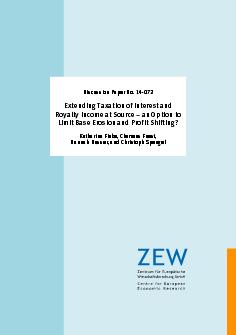Wren-Lewis, S. (2014) “Eurozone Asymmetries“, Mainly Macro Blog, 05 Οκτωβρίου. Suppose a large Eurozone country – let’s call it France – decided that it needs to substantially increase its minimum wage in order to reduce poverty. The increase is sufficiently large that it leads to a sustained increase in average French wage inflation, which in turn decreases the competitiveness of France relative to the rest of the Eurozone. France …Read More
Why A European Unemployment Insurance Would Help To Make EMU More Sustainable
Dullien, S. (2014) “Why A European Unemployment Insurance Would Help To Make EMU More Sustainable“, Social Europe Journal, 03 Οκτωβρίου. Since the onset of the euro-crisis, the old debate pertaining to the supra-national stabilisers in the euro-area has gained new relevance. While economic textbooks have long stipulated that countries forming a monetary union need an alternative mechanism for dealing with asymmetric shocks and even the early feasibility studies on …Read More
Economists Are Blind to the Limits of Growth
Buchanan, M. (2014) “Economists Are Blind to the Limits of Growth“, Bloomberg View, 05 Οκτωβρίου. For all their calculating nature, economists are surprisingly optimistic about humanity’s ability to have as much prosperity as it wants. Express concern about the negative impact of excessive growth on our planet’s ecosystems, and many will simply chuckle and say you don’t understand what growth means. Nobel laureate Paul Krugman, for example, chides natural …Read More
The Effects of a Money-Financed Fiscal Stimulus
Galí, J. (2014) “The Effects of a Money-Financed Fiscal Stimulus“, Centre for Economic Policy Research, 24 Σεπτεμβρίου. I analyze the effects of an increase in government purchases financed entirely through seignorage, in both a classical and a New Keynesian framework, and compare them with those resulting from a more conventional debt-financed stimulus. My findings point to the importance of nominal rigidities in shaping those effects. Under a realistic calibration …Read More
Austerity Tales: the Netherlands and Italy
Mazzolini, G. & Mody, A. (2014) “Austerity Tales: the Netherlands and Italy“, Bruegel Think Tank, 03 Οκτωβρίου. The analysis in this article warns that the deflation is likely to be a country-specific phenomenon, requiring counter measures at the country level In 2008 and early-2009, most euro area countries joined in an internationally-coordinated stimulus of the global economy to ward off the menacing crisis. But by late-2009, especially after the …Read More
The German Constitutional Court’s decision on OMT: Have markets misunderstood?
Siekmann, H. & Wieland, V. (2014) “The German Constitutional Court’s decision on OMT: Have markets misunderstood?“, Centre for Economic Policy Research, Policy Insight No. 74, Οκτώβριος. The European Central Bank’s announcement of the Outright Monetary Transactions (OMT) program in summer 2012 is widely credited, not least by the ECB itself, as a key factor in the subsequent decline of sovereign risk premia in the Eurozone. Following the February 2014 …Read More
Where danger lurks
Blanchard, O. (2014) “Where danger lurks“, International Monetary Fund, Finance and Development, Σεπτέμβριος. The recent financial crisis has taught us to pay attention to dark corners, where the economy can malfunction badly Until the 2008 global financial crisis, mainstream U.S. macroeconomics had taken an increasingly benign view of economic fluctuations in output and employment. The crisis has made it clear that this view was wrong and that there is …Read More
Europe’s Losing Battle For Recovery
Andrews, N. (2014) “Europe’s Losing Battle For Recovery“, Evergreen Gavekal, Daily The wobble in world markets continues, with stock indices across all time zones down steeply in recent sessions. Investors are not only realigning their exposure in anticipation of tighter liquidity conditions as the US Federal Reserve finally brings its asset purchases to a close later this month. After today’s European Central Bank (ECB) meeting they are also looking …Read More
Who is afraid of the Asset Quality Review? Potential Losses and Capital Shortfalls in the European Banking System
Bonczek, T., Fuest, C. & Schröder, M. (2014) “Who is afraid of the Asset Quality Review? Potential Losses and Capital Shortfalls in the European Banking System“, Centre for European Economic Research, Discussion Paper No. 14-074 , Οκτώβριος. The creation of a banking union is widely seen as a key element of institutional reforms towards more financial and economic stability in Europe. Its objective is to improve the effectiveness of …Read More
Extending Taxation of Interest and Royalty Income at Source – an Option to Limit Base Erosion and Profit Shifting?
Finke, C., Fuest, C., Nusser, H. & Spengel, C. (2014) “Extending Taxation of Interest and Royalty Income at Source – an Option to Limit Base Erosion and Profit Shifting?“, Centre for European Economic Research, Discussion Paper No. 14-073, Οκτώβριος. Abstract: This paper discusses tax policy measures to reduce corporate tax avoidance by extending taxation in the source country without imposing double taxation. We focus on four options: Bilaterally restricting …Read More





